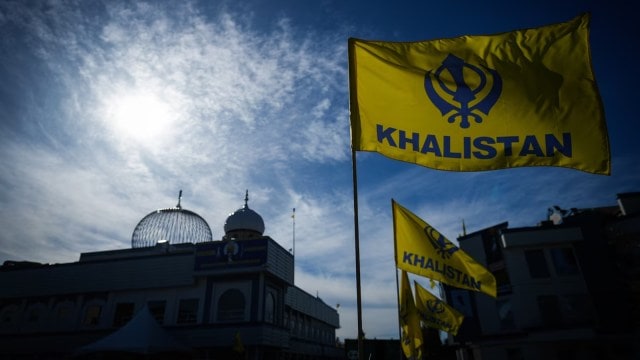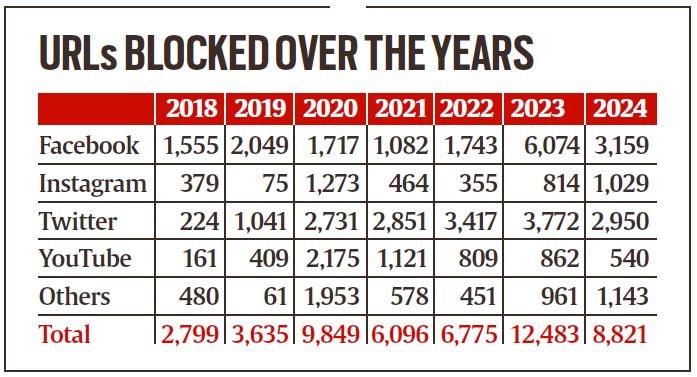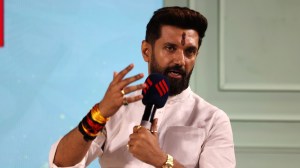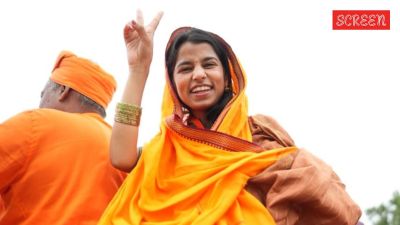The latest data was discussed recently by the Ministry of Electronics and Information Technology (MeitY) with the senior officials of the Ministry of Home Affairs.

“Since 2021, around 10,500 URLs related to the Khalistan referendum have been blocked under section 69 (A) of the IT Act. Also, many mobile apps launched for spreading the Khalistan referendum were blocked by the department concerned… Around 2,100 URLs related to the PFI (Popular Front of India) were blocked under Section 69 (A) of the IT Act,” a source said, adding that several radicalisation posts/accounts related to LTTE, J&K militants, Waris Punjab De (WPD) have also been blocked.
Story continues below this ad
In the last three years, the Centre has locked a total of 28,079 URLs and the most of them were from Facebook (10,976), and 10,139 from X, formerly Twitter. Most of the Facebook URLs blocked were found to be part of fraud schemes.
As many as 2,211 YouTube accounts, 2,198 Instagram, 225 Telegram and 138 WhatsApp accounts have also been blocked during the period. Sharing the year-wise, an officer in the security establishment said that 6,775 social media accounts were blocked in 2022, total 12,483 in 2023 and 8,821 this year.
On X, 3,417 accounts were blocked in 2022, as many as 3,772 in 2023 and 2,950 till September 30, 2024.
On Facebook, 1,743 accounts were blocked in 2022, as many as 6,074 in 2023 and 3,159 this year.

Story continues below this ad
“Probe has revealed that most of the blocked Facebook URLs were used to take users to third party websites or app stores from where they were either directed to download android package kit, or WhatsApp groups to fraud them through trading, investment or work from home type frauds,” the officer said.
An officer said on YouTube, 809 accounts were blocked in 2022, as many as 862 in 2023 and 540 this year. “On Instagram, 355 accounts were blocked in 2022, as many as 814 in 2023 and 1,029 this year. On WhatsApp, 66 accounts in 2022, as many as 16 last year and 56 so far this year were blocked,” the officer added.
“The URLs were blocked based on the recommendations of the MHA, which had received inputs or evidence from central intelligence agencies that some of the sites and apps allegedly contained “material prejudicial to the sovereignty and integrity of India,” the officer said.
Section 69 of the IT Act allows the government to issue content-blocking orders to online intermediaries such as Internet Service Providers (ISPs), telecom service providers, web hosting services, search engines, online marketplaces, etc. However, the Section requires the information or content being blocked to be deemed a threat to India’s national security, sovereignty, or public order.










